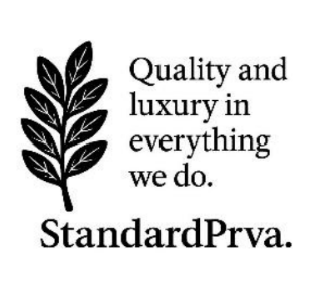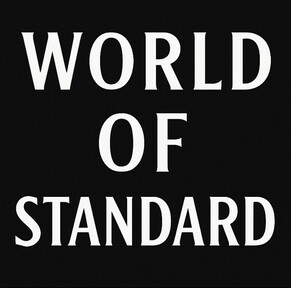Alumni Column: Stefan Cvijetić – Where the Big Four Make Mistakes
26.06.2025Stefan spent 10 years working at AK Stevanović as a financial expert and is a member of the StandardPrva Alumni community.
A test sheet with answers—even symbolically, it was on such training exams that cases of cheating were uncovered in Big Four firms. The latest scandal involving all four major auditing firms—Deloitte, PwC (PricewaterhouseCoopers), KPMG, and EY (Ernst & Young)—erupted after the discovery of widespread cheating on internal professional training exams. According to the Financial Times, the US Public Company Accounting Oversight Board (PCAOB) found that hundreds of employees (including partners) in the Dutch branches of Deloitte, PwC, and EY between 2018 and 2022 shared answers on mandatory internal training tests. These programs cover areas such as professional ethics, auditor independence, accounting standards, and other key aspects of the job. Such behavior constitutes a serious breach of professional standards and internal quality control rules.
The PCAOB responded strongly, imposing fines totaling $8.5 million on the three Dutch firms for rule violations and quality control lapses. Individually, Deloitte Netherlands and PwC Netherlands each agreed to pay $3 million, while EY Netherlands was fined $2.5 million. According to the PCAOB, these penalties would have been significantly higher if the firms had not cooperated with the investigation and taken internal measures after the violations were discovered. These disciplinary measures were implemented as settlements—the companies, without admitting or denying the findings, accepted the fines and committed to improving their internal procedures. The Dutch financial regulator (AFM) was also notified and will oversee the implementation of corrective actions locally.
The incident in the Netherlands is just the latest episode of a wider problem that “has haunted the audit industry for years.” Cases of cheating on internal training exams have emerged in multiple countries, indicating systemic challenges in the culture and ethics even among the most reputable firms. In a statement, the PCAOB emphasized that it will continue to take rigorous global action to root out such behavior, because “little undermines public trust as much as compromised professional integrity.”
Firms, Countries & Fines by Regulator
Netherlands (Dutch firms) – As described above, PCAOB sanctioned Deloitte, PwC, and EY in the Netherlands with a combined $8.5 million fine for cheating. Individual fines: $3M each for Deloitte and PwC, and $2.5M for EY. These penalties came in 2025 as part of settlement agreements, along with commitments to strengthen quality controls and ethical culture.
China & Hong Kong – Late in 2023, the PCAOB fined PwC’s China (Shanghai) and PwC Hong Kong offices for mass cheating during training. Investigators found that between 2018 and 2020, over 1,000 employees in PwC Hong Kong and hundreds in PwC China shared answers via unauthorized apps on US accounting standards tests. PwC Hong Kong agreed to a $4M fine and PwC China to $3M, totaling $7M. Both firms were also required to appoint independent monitors to oversee and improve their training and ethics programs.
Israel – In early 2025, cheating was uncovered at PwC Israel. The PCAOB reported that hundreds of employees improperly shared answers on internal ethics and auditing standards exams, resulting in a $2.75M fine. PwC Israel became the tenth firm penalized in the global “training cheating” sweep since 2021.
Philippines & Indonesia – In April 2024, the PCAOB fined Deloitte Philippines and Deloitte Indonesia each $1M for widespread sharing of answers among employees on internal training tests. A senior manager at Deloitte Philippines (Wilfredo Baltazar) was also personally sanctioned.
United States – Even before these incidents, similar scandals occurred domestically. In 2022, Ernst & Young (EY) in the US paid a record $100M fine after the Securities and Exchange Commission (SEC) found that a “significant number” of auditors had cheated on exams—including the ethics portion of the CPA exam—for years, and that the firm obstructed the investigation by concealing evidence. This remains the largest fine ever issued by the SEC to an auditing firm. Earlier, in 2019, KPMG US agreed to pay a $50M settlement with the SEC, partly due to employees cheating on mandatory internal training tests by sharing answers and altering results, among other violations.
Netherlands – KPMG case (2024) – Separately from the $8.5M group fine, KPMG Netherlands was involved in a similar scandal. In April 2024, the PCAOB fined KPMG Netherlands a record $25M—the largest penalty in the regulator’s history—for “egregious” widespread cheating on internal tests between 2017 and 2022, involving senior partners. The situation was made worse when the PCAOB determined that KPMG Netherlands had given false statements to investigators and covered up their knowledge until a whistleblower came forward in 2022. In addition to the financial penalty, the PCAOB permanently barred former head of audit Marc Hogeboom and other senior managers from practicing. The Dutch regulator (AFM) also imposed increased oversight on KPMG to prevent future violations.
These fines were mostly issued by U.S. regulators—the PCAOB for audit quality and ethics matters, and the SEC for broader violations of securities laws and professional standards. In some cases, national regulators carried out parallel investigations or actions (such as the AFM in the KPMG Netherlands case). This coordination underscores the severity of the problem and the international nature of the scandal, given that global audit networks operate under the jurisdiction of multiple regulatory bodies.
Official Company Responses
The cheating allegations have heavily damaged these firms’ reputations, prompting them to distance themselves from the misconduct and pledge improvements:
KPMG Netherlands: CEO Stefanie Hottenhuis acknowledged the seriousness of the case, calling the findings “devastating” for the firm’s reputation. “I deeply regret that such misconduct occurred in our firm. We owe an apology to our clients and the public. They rely on our quality and integrity—trust is the foundation of our license to operate. Trust is essential in our business, and we must learn from this and change our culture and behavior,” she stated. She also said all involved—across seniority levels—have been disciplined; some have left the firm, and internal controls have been tightened to ensure proper test-taking. KPMG Netherlands pledged full cooperation with regulators and internal reforms, adding: “It’s a hard lesson, but we’re determined to learn from it.”
Deloitte: A spokesperson described the “answer-sharing” in some branches as “unacceptable behavior,” emphasizing it does not align with the firm’s values. In a statement following the April 2024 fines, Deloitte said it remains committed to delivering “the highest quality services in line with professional standards” and has taken steps to prevent recurrence. Following the new 2025 Dutch fines, Deloitte Netherlands distanced itself from individual actions, calling them isolated violations, and said it is cooperating with the investigation. (Media sources note Deloitte has generally committed to strengthening its integrity culture and controls).
EY (Ernst & Young): In response to the Dutch sanctions, EY Netherlands stated that “integrity is a core value” and that such violations are taken extremely seriously. The firm said it fully cooperated with the PCAOB investigation and has already taken “extensive measures to strengthen compliance, ethics, and integrity culture.” EY conducted an internal review and addressed the issues, stating that by settling with the PCAOB it “closes this chapter” and focuses on implementation of measures with the local regulator (AFM) to ensure such lapses do not recur. Earlier, following the record SEC fine in 2022, global EY expressed “disappointment in the behavior of some employees” and pledged a comprehensive audit of its ethics programs, accepting the introduction of independent observers to oversee training and compliance processes as a mandated remedy.
PwC (PricewaterhouseCoopers): PwC Netherlands said, upon settlement with the PCAOB, that they took steps to correct the issue and that their internal investigation aligned with the regulator’s. “This conduct is inconsistent with our values,” PwC said, adding that all employees found responsible were disciplined. Internal sanctions included written warnings, fines, demotions, and dismissals. PwC noted regret over the misconduct and said it would continue strengthening its integrity culture. Similarly, PwC offices in Asia (China, Hong Kong) and Israel said, after fines were issued, that they are introducing independent monitors and additional training to rebuild trust. PwC Global reaffirmed its zero‑tolerance policy toward unethical behavior.
Public and Professional Reactions
The revelation that employees at leading auditing firms cheated on ethics and technical knowledge exams has caused concern and condemnation from both the public and the professional community. Regulators and analysts warn that such scandals undermine trust in the auditing profession, which relies heavily on integrity. “Few things erode trust more than compromised ethics,” emphasized PCAOB Chair Erica Williams, adding that the board will act forcefully against any failure by firms to ensure a culture of honesty and integrity. Williams made it clear: “The PCAOB will not tolerate cheating or any unethical behavior. Period.”
Professionals in the field called it both paradoxical and “scandalous” that auditors—the supposed “guardians of financial integrity”—were caught cheating on professional ethics exams. “It’s simply outrageous that those responsible for detecting client fraud were themselves cheating on ethics tests,” stated SEC Enforcement Director Gurbir Grewal when announcing the fine against EY. He said these incidents send a clear message: not even the biggest firms are above the rules, and breaches of trust will be strictly punished. Many fellow auditors and commentators on social media voiced disappointment, questioning the example these global giants are setting for younger professionals if even senior staff failed the test of integrity.
Auditing and accounting associations largely supported the regulators' strong actions. The American Institute of CPAs and other bodies emphasized that continuing professional education must be credible and that any cheating undermines the very core of the profession. Some analysts, such as accounting professor Robert Pawlewicz, noted that the PCAOB has in recent years launched “cultural reviews” inside firms to determine why such failures persist. They also raised the issue of “tone at the top”—whether leadership is truly promoting ethical values—and called for sweeping changes in Big Four corporate culture. In a comment for CFO Dive, Professor Pawlewicz suggested that the PCAOB may have accelerated the conclusion of some investigations in order to bring these violations into the public eye and create a deterrent effect, especially amid uncertainty over the board’s own political future.
The wider public and clients of these firms reacted with frustration and concern. Financial commentators pointed out that this wave of scandals comes at a difficult time when the auditing industry is trying to rebuild its reputation after previous failures (such as missed red flags in major corporate collapses). Multiple media outlets—including the Financial Times, Reuters, and Bloomberg—covered the issue extensively, noting the irony that firms tasked with verifying others’ financial statements are struggling to “clean their own house.” Public debate also focused on accountability—many are calling for top executives to bear consequences for cultural failures, not just lower-level employees who cheated. In the case of KPMG Netherlands, for example, the firm’s head of audit received a lifetime industry ban—hailed as an example of accountability that goes beyond mere “scapegoating.”
Previous Scandals and Disciplinary Actions
Cheating on exams is unfortunately not an isolated incident for the Big Four—each of the global audit firms has faced similar issues in recent years, indicating a recurring pattern regulators are now trying to stamp out:
Ernst & Young (EY) – SEC Fine 2022: One of the most high-profile cases occurred in June 2022 when the SEC revealed that dozens of EY auditors in the U.S. had cheated for years on tests required to obtain and maintain their CPA licenses. Especially troubling was the cheating on the ethics portion of the exam and mandatory continuing education courses. The SEC found that EY misled investigators—initially denying any ongoing cheating issues while internally conducting a related investigation. EY admitted to the misconduct and accepted a record $100 million fine. As part of the settlement, the SEC required EY to engage independent consultants to review its ethics policies and examine how the firm responded to knowledge of cheating. This case made headlines, and SEC officials described the conduct as “shocking” and “inexcusable.”
KPMG – SEC Fine 2019: In 2019, KPMG agreed to pay a $50 million fine to the SEC, partly due to allegations that employees cheated on internal training tests. The investigation revealed that several staff members shared answers and improperly altered test results as part of auditor training programs. This case was also tied to a separate major violation—stealing confidential information about upcoming PCAOB inspections—which further increased KPMG’s liability. The 2019 fine was one of the largest at the time, until EY’s 2022 record penalty. KPMG stated it had dismissed responsible individuals and tightened oversight, but as later shown by the 2024 Netherlands case, problems with learning culture and rule compliance were not fully resolved.
Other Incidents: Besides these major cases, other firms have faced scrutiny for similar misconduct. Media reports indicate that Deloitte Canada faced an internal cheating scandal in 2019 involving technical tests (which was dealt with internally, avoiding public regulatory penalties). PwC in Australia went through a reputational crisis—not over exam cheating, but due to leaks of confidential tax data—putting pressure on the firm to demonstrate ethical behavior across the board. While these incidents differ in nature, they contribute to the broader perception that major accounting firms need to thoroughly reexamine their internal values and controls.
Regulatory agencies around the world are now sharing information and coordinating efforts to ensure ethical standards are upheld. The PCAOB stated that it had penalized at least nine firms globally for training exam cheating since 2021—before the most recent wave of fines—demonstrating determination to eliminate “shortcuts in learning.” But this also raises the question: how did these practices become so widespread in the first place?
Most agree that rebuilding trust will be a long road. Big Four firms must prove to regulators, clients, and the public that they can foster a culture where ethical behavior is non-negotiable—even behind closed doors during routine internal tests. As one commentator put it, the reputations of these firms were built over decades, but can be tarnished in an instant—making transparency and genuine accountability the only path to restoring credibility. Recent leadership statements, unprecedented fines, and intensified oversight suggest the profession is confronting its own weaknesses. The hoped-for outcome: a stronger culture of integrity that ensures such a scandal is never repeated.
References
Financial Times – “Big Four firms fined in new exam cheating scandal,” June 25, 2025.
Reuters – “KPMG, Deloitte affiliates hit with US penalties for exam cheating,” April 10, 2024.
Reuters – “Exam cheating has dogged the audit industry for years…,” April 10, 2024.
PCAOB (Public Company Accounting Oversight Board) – Press release, April 10, 2024 (record fine against KPMG Netherlands).
PCAOB – Press release, November 30, 2023 (fines against PwC China and Hong Kong).
Bloomberg Tax – “Deloitte, EY, and PwC Fined $8.5 Million for Dutch Exam Cheating,” June 25, 2025.
Bloomberg Law – “PwC Israel to Pay $2.75 Million for ‘Widespread’ Exam Cheating,” February 25, 2025.
CFO Dive – “PCAOB imposes smaller exam cheating fines, citing cooperation,” June 25, 2025.
CFO Dive – Statement from PwC Netherlands.
The Wall Street Journal / Financial Times (reposted by Comsure) – Statement from the CEO of KPMG Netherlands.
U.S. SEC – Press release, “Ernst & Young to Pay $100 Million Penalty… (CPA ethics exam cheating),” June 28, 2022.
/ / /
"Standard Prva" LLC Bijeljina is a company registered in Bijeljina at the District Commercial Court in Bijeljina. Company’s activities are accountancy, repurchases of receivables, angel investing and other related services. Distressed debt is a part of the Group within which the company repurchases the receivables, which function and are not returned regularly.
Lawyer’s Office Stevanović is the leading lawyer’s office in the region with the seat in Bijeljina. The LO abbreviation represents Lawyer’s Office of Vesna Stevanović and Lawyer’s Office of Miloš Stevanović.
Contact for media press@advokati-stevanovic.com or via telephone 00 387 55 230 000 or 00387 55 22 4444.





